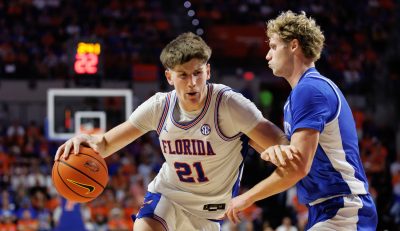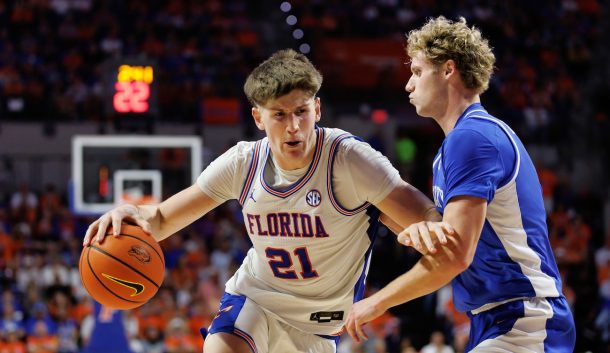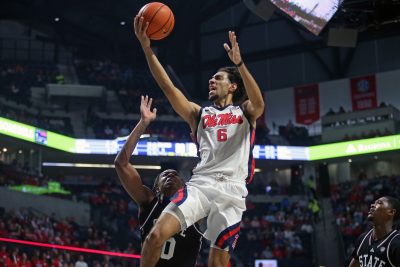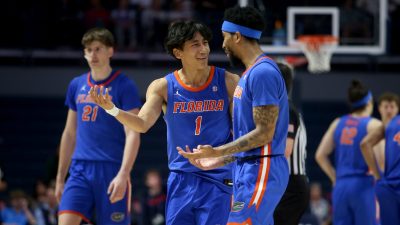It sounds like an excuse, or at best a glass-half-full approach, but the Ole Miss Rebels can blame injuries, not lack of talent, for their demise in 2014.
This is normally a line used by fans trying to justify an ugly loss like the one Ole Miss suffered in Wednesday’s Peach Bowl. Let me assure you that while I respect Hugh Freeze and his Ole Miss program, I have no vested interest in their success.
But I do truly believe it was the injury bug that ultimately bested the Rebels this season. Every team suffers injuries throughout the year, but few teams suffered as many injuries to key contributors as Ole Miss did in 2014.
Think about it: The Rebels began the year 7-0 and looked pretty darn impressive in doing so. They defeated an 11-win Boise State team on a neutral site. They blasted Texas A&M at Kyle Field when A&M was still ranked. They hosted College GameDay for the first time ever and handed Alabama its first and only loss of the season.
They also achieved all of that with a healthy core of talent allowing it to compete in the grueling SEC West.
But the injury bug made its presence felt in Ole Miss’ eighth game of the year — a 10-7 defeat at the hands of LSU — and it never went away.
The Rebels lost former All-SEC linebacker Denzel Nkemdiche for the season when he suffered a broken leg against the Tigers, and although that injury didn’t cost Ole Miss in that particular game, it would start a nasty trend that would impact the Rebels in the coming weeks.
One loss, especially one on the road against a highly respected LSU team, could have been overcome. Had Ole Miss finished the year 11-1, it would have won the SEC West.
But when the Rebels lost their second game of the year the very next week — a loss that can be directly attributed to injuries — the wheels began to fall off.
The Rebels dropped a heartbreaker to Auburn, coming less than a yard shy of a go-ahead touchdown late in the fourth quarter. On the play in question, star wideout Laquon Treadwell was streaking toward the end zone when he was pulled down from behind, causing his leg to buckle awkwardly.
He, too, broke his leg, and he, too, would miss the remainder of the season as a result. Worse yet, Treadwell fumbled the ball inside the 1 yard line, likely due to the pain he felt in the moment his injury occurred (it certainly didn’t seem like the ball was knocked out by another player).
The loss sucked the life out of the Ole Miss season. They were now down two stars and were all but eliminated from the SEC West race. They watched their most talented player make a season-killing mistake while enduring intolerable pain.
It wasn’t just the drop in talent that made the injuries so tough to overcome; it was the way they deflated the team and killed its momentum.
Unfortunately, the Rebels’ health would continue to deteriorate. After a bye and an FCS cakewalk, the 8-2 Rebels met the surging Arkansas Razorbacks, and once again injuries would cost the Rebels in a bad way.
Ole Miss was dismantled by the Hogs in a 30-0 loss, and when they lost quarterback Bo Wallace for a portion of the game to an ankle injury the offense was incapable of piecing a drive together in his absence.
To compound the issue, All-American left tackle Laremy Tunsil played through a shoulder injury for most of the game, but the star of an otherwise inconsistent offensive line was nowhere near himself.
The offense failed to put a single point on the board as a result, and while the loss can be attributed to more than just the injuries suffered by Tunsil and Wallace they certainly didn’t help the Rebels’ comeback efforts.
In the week following the game, starting guard Aaron Morris tore his ACL, limiting him in a stunning upset of Mississippi State in the Egg Bowl and sidelining him for the Peach Bowl. Now the Rebels would have to face a top 10 team (and a playoff snub at that) without one of its best defenders, its best skill player on offense and a veteran offensive lineman.
When the Peach Bowl finally arrived, the already overmatched Rebels lost lineman Robert Conyers to a leg injury early in the game, then lost Tunsil before halftime when he broke his leg. Without three starting offensive linemen and its most dynamic playmaker, Ole Miss ran for only nine yards allowed five sacks while committing four turnovers. The injuries were simply too much to overcome.
Don’t get me wrong, only one of the injuries affected a defense that allowed 42 points in just 32 minutes to the TCU offense. Even if Nkemdiche had played it likely wouldn’t have mattered.
But one could also argue that a healthier, more productive Ole Miss offense might have helped its defense in losses to Arkansas and TCU. The Rebels were dominated in time of possession in both games, and turnovers routinely set up the opposing offenses with great scoring opportunities.
With the book officially closed on the 2014 season, it would be naïve to think injuries are the sole reason the Rebels couldn’t win 10 games or contend for the West crown.
But injuries certainly took a toll on the Rebels more so than any other team in the West. Their 7-0 start, top-ranked scoring defense and win over Alabama show just how good this team could have been had it stayed somewhat in tact. They wouldn’t have finished undefeated, but they would have been far better than the team we saw in the Peach Bowl on Wednesday.
The Rebels had a special season in 2014, but they might have made history were it not for the injury bug. Once again, Rebels fans will spend the offseason muttering woulda, coulda, shoulda. And that’s just too bad.
A former newspaper reporter who has roamed the southeastern United States for years covering football and eating way too many barbecue ribs, if there is such a thing.







